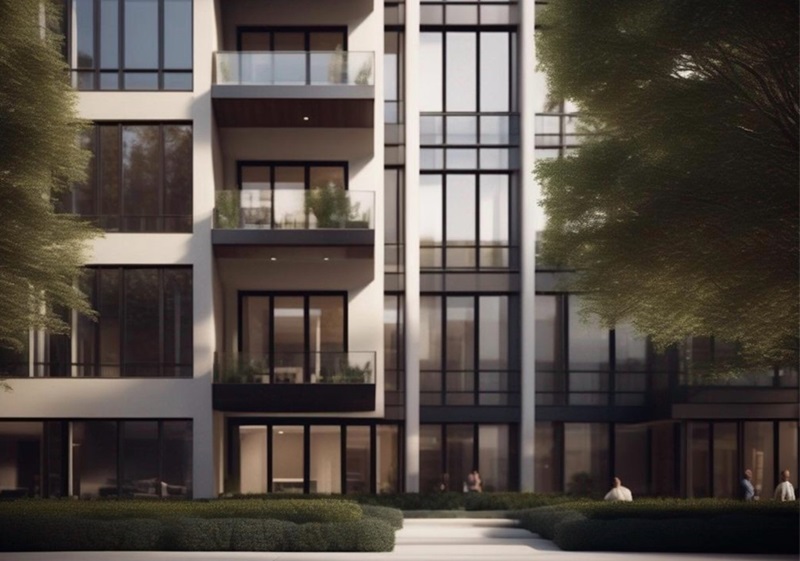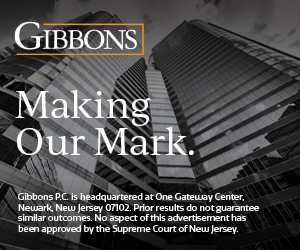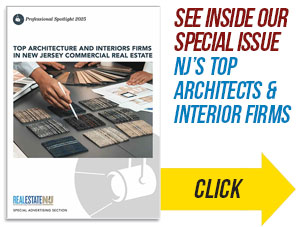Rendering courtesy: Weston Architecture
By Ronald C. Weston, AIA
With 2024 business in full swing, American Institute of Architects (AIA) New Jersey architects look forward to new opportunities across the state. We are focused on applying creative problem solving and visioning to help owners and developers maximize the investment value of their properties. We know that good design can add economic value for owners and benefit all project stakeholders.
The commercial real estate (CRE) sector faced headwinds coming out of 2023 with the sector having been adversely impacted by elevated interest rates and restrictive lending. Overlayed on these cyclical economic challenges, many brick-and-mortar CRE assets — especially office and retail properties — are facing generational shifts that were accelerated by the pandemic.
The following are just a few trending themes that the savvy developer will want to be familiar with:
Adapting for change
Converting distressed office and retail buildings into housing through redevelopment is a very hot topic. In 2019, New Jersey Gov. Phil Murphy signed into law a bill expanding the eligibility of properties containing vacant or distressed shopping malls, shopping plazas or professional office parks to be designated as areas in need of redevelopment. This legislation was put in place as a land use tool for public-private partnership to effectuate the redevelopment of “stranded assets.” It is not just office buildings being reconsidered. Other conversions including retail to health care, big box stores to entertainment venues and obsolete malls to mixed-use centers are all popular now.
Buildings are subject to environmental, social and economic pressures and ideally would be designed to adapt over time to provide continued service and value. New and redeveloped commercial projects can benefit from being designed with flexibility in mind to accommodate future uses and counter functional obsolescence. Reusing an existing structure can lower initial costs, lower embodied carbon and preserve community history in the case of distinguished buildings where converting them adds value.
Mixing it up
In the current real estate cycle, underutilized commercial properties are ripe for being totally reinvented. Larger redevelopment sites mixing office, retail, entertainment and residential uses in a compact area can create active community destinations. Walkable mixed-use places provide residents with access to services and other businesses offering people the opportunity to live, work, shop and dine in a walkable area.
From an investment standpoint commercial owners can benefit from a broader rental base by having multiple asset classes located on a single site. Mixed-use properties also add a vacancy buffer, as the loss of any single occupant will have a reduced impact on revenue.
Building for health and wellness
The well-being of building occupants is crucial and has become increasingly important alongside health concerns that were top of mind during the pandemic. Forward-thinking commercial building owners are embracing formal “well-being strategies” for their properties. Buildings that have been designed with occupant health in mind can better attract and retain tenants, and in turn, attract and retain the staff of those tenants — benefiting the bottom line for both building owners and tenants.
The AIA Framework for Design Excellence principles can help guide the industry towards creating a healthier and more sustainable built environment. Most commercial real estate professionals likely are familiar with national programs like LEED®, or the WELL Building Standard®, which offer evidence-based strategies that can improve the health and well-being of building occupants. Making indoor air better to breathe, increasing the amount of indoor natural light, and installing healthier materials, are just a few ways that architects and owners can create more desirable commercial spaces and places.
About the author: Ronald C. Weston, AIA, LEED AP, PP was the 2023 President of the AIA New Jersey Chapter, where he continues to serve as an Officer and Board Trustee. Weston has four decades of experience in the architecture, planning and design field and is Founding Principal of NJ-based Weston Architecture LLC.
The New Jersey Society of Architects
A Chapter of the American Institute of Architects










